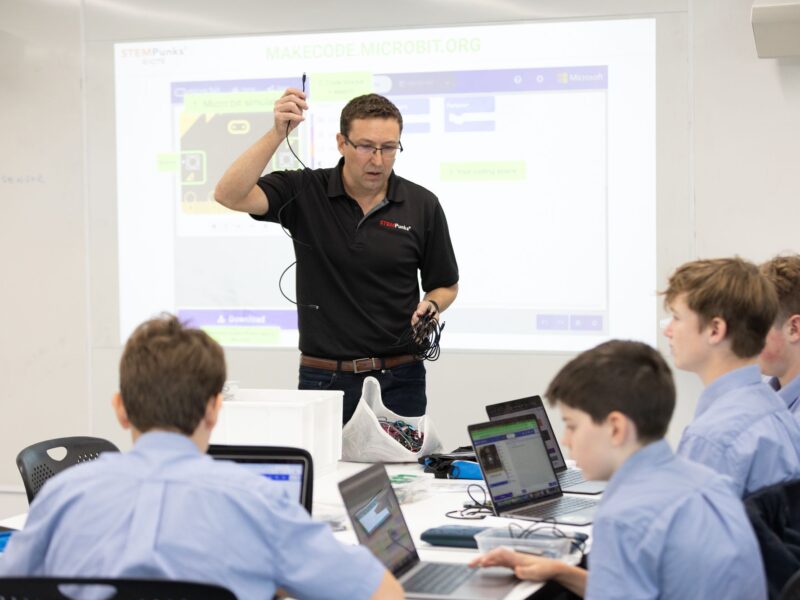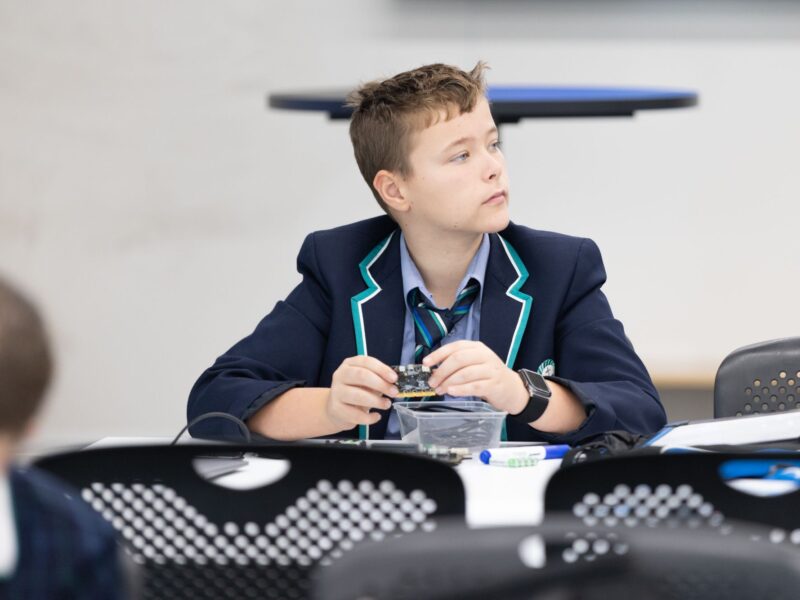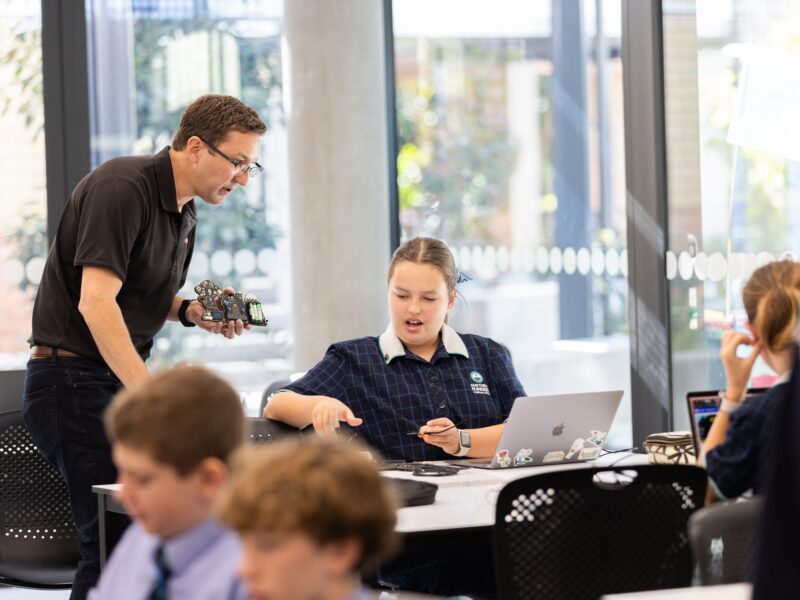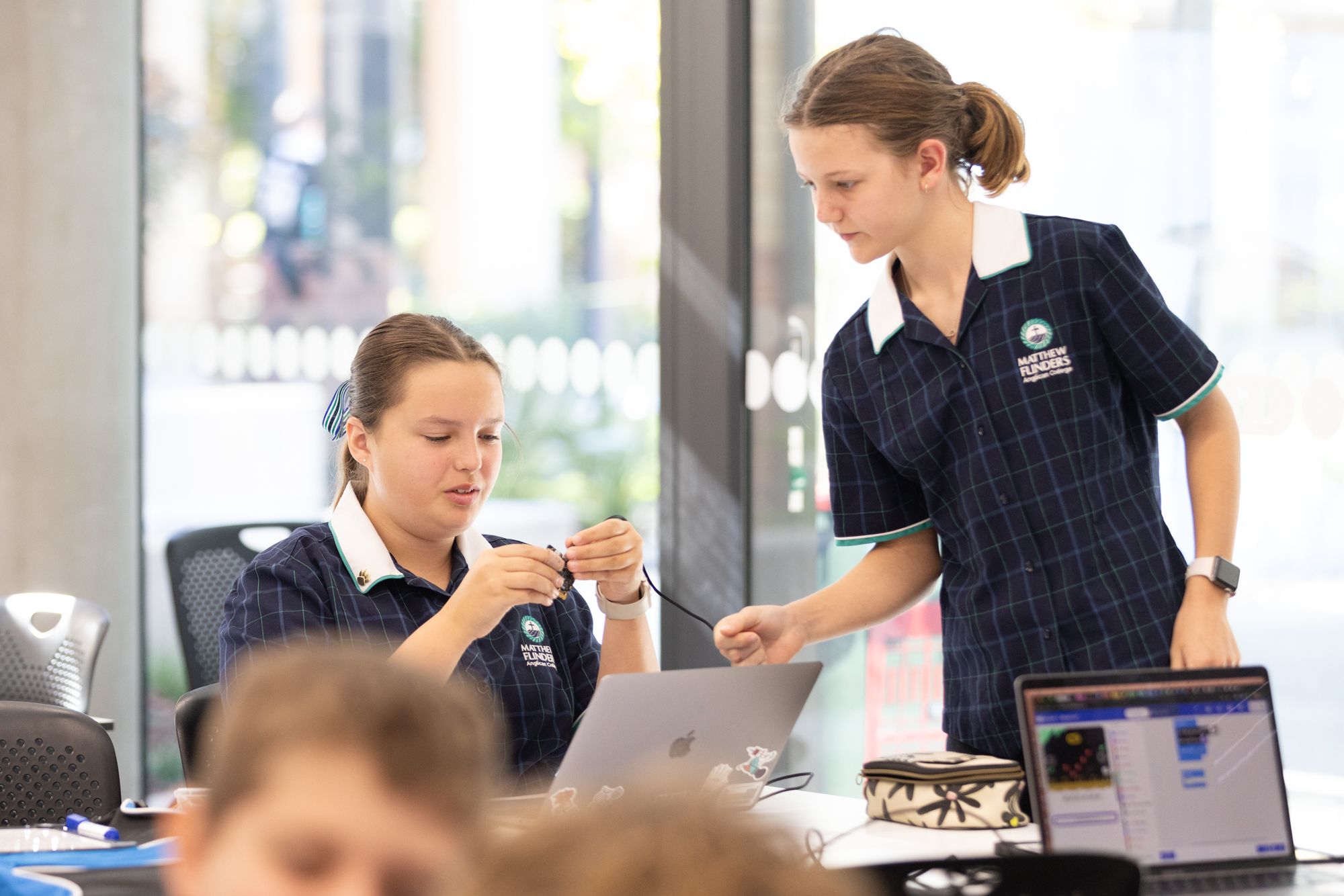Year 8 students at Matthew Flinders Anglican College are building their skills and capability in Digital Technologies to solve local and global sustainability problems under the mentorship of STEM Punks Educator, Chris Buswell.
Students recently engaged in a ‘sustainability innovation challenge’ using Micro:bits and the Environmental Sensor STEM tool to measure air quality and analyse the data.
Based in the new state-of-the-art Infinity Centre, the design thinking challenge was an opportunity for students to consider the global issue of air quality and its impact on human health.
Students explored the potential to develop clean air initiatives that can positively impact the world.
Head of Technologies, Mrs Natalle Sutton, said the College was delighted to be forging a partnership with STEM Punks – a passionate team of educators and innovators on a mission to inspire a positive change in STEM Education across the globe.
“The ‘Sustainability Innovation Challenge’ provides an exciting opportunity for our students to learn how to empathise with local community needs and define local and global problems using the UN Sustainable Development Goals,” Mrs Sutton said.
“Our Year 8s were challenged through collaborative design exercises and prototype solutions using the Environmental Sensor STEM tool to detect learning conditions.
“Along the way, they experienced first-hand the development of real-world problem-solving, creative thinking and critical thinking using technology.”
Mentor Chris Buswell enjoyed encouraging the students to discuss the United Nations Sustainable Development Goals, which are 17 goals established by the United Nations in 2015 to address global challenges and achieve a better and more sustainable future for all by 2030.
The goals cover a wide range of issues, including poverty, inequality, climate change, environmental degradation, peace and justice.
Through the discussion, the students explored how they, as Generation Z (those born approximately between 1997 and 2012), perceive and engage with both local and global issues.
It was empowering for the students to consider how Generation Z have the potential to use their digital savviness and awareness of social and environmental issues to create a healthier future.



End.

